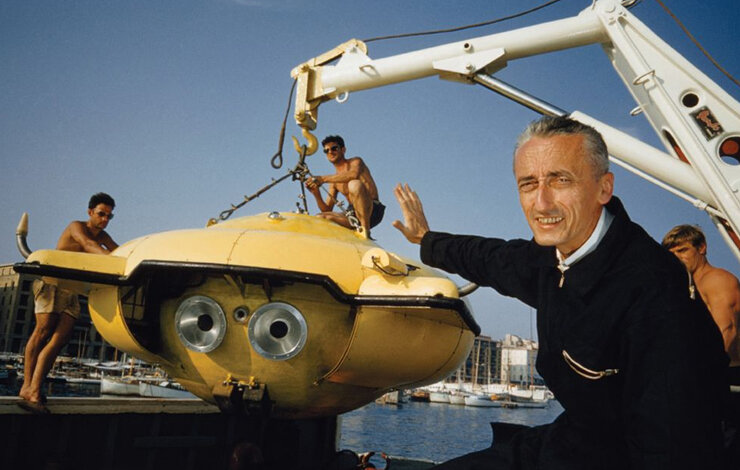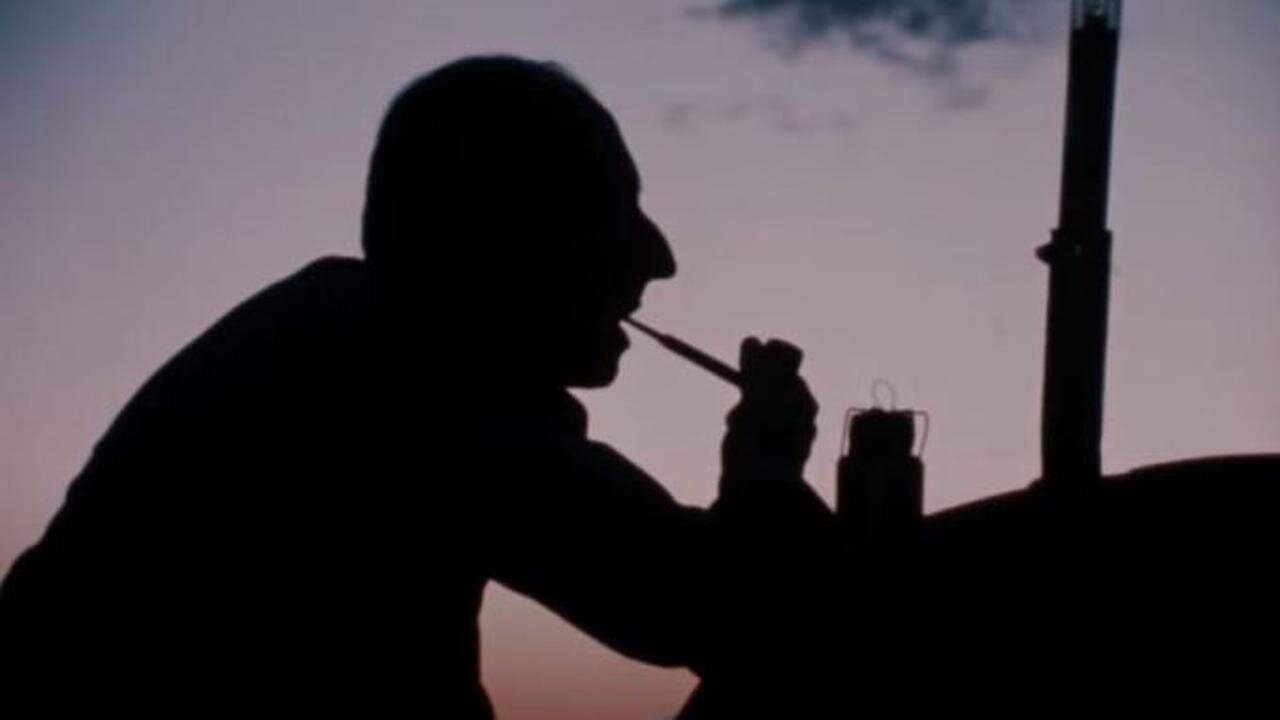'Becoming Cousteau' Review: An Informative and Exciting Look Into the Legendary Oceanographer [TIFF 21]
‘Becoming Cousteau’ is the perfect example of the kind of documentary that is not necessarily gripping, but it is a very important for viewers who care about the future of our planet.
Director Liz Garbus delves into the life of the legendary oceanographer through unique uses of voiceover, stock footage and visuals to bring an urgency to our current climate crisis. Many of the best documentaries that look into the life of an individual that helped shape the world look at both their accomplishments as well as their personal flaws yet also be related to what is happening in the present day that audiences, especially those who weren’t alive at the time, can identify with and be motivated to make a difference. Liz Garbus’ exploration into the life and work of Jacques Cousteau is one of them being both a multilayered look at a pioneer of ocean conservationism and a wake up call.
Having already earned acclaim for her documentaries on figures such as Nina Simone, Marilyn Monroe and Bobby Fischer, Garbus is able to balance all the aspects of this genre in educating viewers about Cousteau, his accomplishments and the underwater world of which he was so passionate about and yet still make it feel relevant to us by making sure we continue to honor the man’s legacy in protecting the environment. As the film starts, we get a mix of stock footage and narration from actor Vincent Cassel, who voices Cousteau as the words from his personal diary come on the screen to show us that this was a man who always wanted to go further than what was humanly possible with sea exploration. It then goes into the early aspects of Cousteau’s life and how even as a young child, he had a sense of adventure.
A fateful car accident that nearly cost him his life encouraged him to find solace in the sea seeing it as a “dream world”. Cousteau eventually finds his true calling in diving and as the film continues, Garbus showcases how he helped pioneer deep sea diving with the invention of the Aqualung that allowed him to go father than anyone could have dreamed of, his acclaimed filmmaking style and success on television that made him an international household name.
One of the many aspects that works about this documentary is how despite going into all of the amazing things about Cousteau, his positive influence on sea exploration and having a mostly upbeat tone, it also doesn’t shy away from the flaws and many of the things that would haunt him and affect his work. Through archival footage of the subject and interviews with those who knew him or studied him, the audience sees a darker side of the man. Cousteau was always very self critical of his work and even when he reached a goal, he always felt the need to top himself. This drive and passion would ultimately make him distant from his family and Garbus does a pretty good job at exploring Cousteau’s relationship with his wife Simone and sons Jean-Michael and Philippe. We learn how Jean-Michael felt sidelined by his father over the more adventurous Philippe and how the later’s death in a helicopter crash affected Jacques’ work and even health near the last years of his life. Although it could have gone into more detail about his personal life, what is revealed does a good job at humanizing him.
As you would expect from a documentary that deals with the undersea world, we get some really incredible footage that Cousteau shot over the course of his career. Some of this footage has never been made available to the public until now. Much of the underwater cinematography is stunning to look at, giving a cinematic feel that would look amazing on a big screen and give audiences an idea of what the world of the underwater life was like and why we need to protect it. Cousteau had once stated that he considered his film work to be more like adventure films rather than documentaries aiming to give audiences a real life version of the sort of epics John Ford and John Huston made during that era and this film really does a solid job at capturing that vision.
If there are any issues with the film, it’s that it only comes in at 93 minutes, and as a result, feels fairly incomplete. There could have been a stronger dive into some of the filmmaking ambitions of Cousteau and the passion he had for it. The footage that is shown is beautiful but it didn’t feel like there was enough of it which will make some viewers unfamiliar with the man wonder what the fuss is about his legacy. Had Garbus looked more into this part of Cousteau’s life and explained why this was essential to both his career and the sea exploration movement in general, we could have had a more exciting film. The ending also feels a bit abrupt looking at Cousteau’s last few years and how he warned the world about ocean pollution and the dangers it has on everybody. With his death in 1997, it seems like Garbus wanted to make us have a sense that Cousteau’s mission has never ended and feels a bit like a recruitment for viewers to get on board and go further than Cousteau did.
Despite those flaws, Becoming Cousteau still succeeds in what it is supposed to do and that is to explore the life and legacy of this extraordinary man and what he brought to the world of oceanography. Most importantly, it provides an urgent wake up call to those who are either uninformed or ignorant about the threat of climate change and what we need to do in order to protect our world. With beautiful footage and a unique take, this should please fans of Jacques Cousteau.



